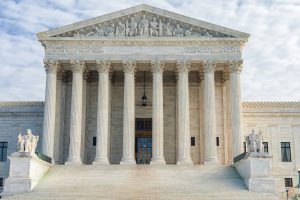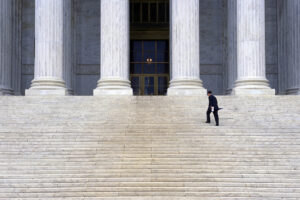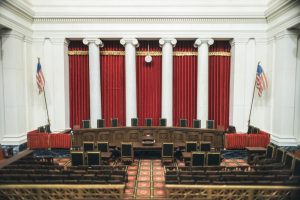As a general rule, governments, sovereign wealth funds, national oil companies, and the like are immune from suit unless one of the Foreign Sovereign Immunities Act (“FSIA”) exceptions to immunity applies. The FSIA details the rules governing when it is permissible to sue a foreign government or an instrumentality of a foreign government in federal court.
Until June, the rule in the Ninth Circuit was that a sovereign could be subject to suit in federal court, even under one of the listed exceptions, only if the foreign government was also subject to personal jurisdiction in the trial court, based on a “minimum contacts” analysis. The U.S. Supreme Court in CC/Devas (Mauritius) Ltd. v. Antrix Corp., No. 23-1201, 605 U.S. ___ (2025), decided on June 5, reversed the Ninth Circuit, holding that a foreign sovereign can be sued if one of the FSIA exceptions applies and process is properly served, without the need for an additional personal jurisdiction showing.
Antrix arose from a satellite communications deal between a satellite company (Devas) and an arm of the Indian government (Antrix). After Antrix backed out of performance under the parties’ agreements, Devas commenced an arbitration to recover damages for breach of contract. The arbitrators ruled in Devas’s favor and rejected Antrix’s defense that the force majeure provision in the contract excused Antrix from performing. (The facts are a lot more complex than that, but for present purposes that suffices.)
Devas sued in federal court in Seattle to confirm the arbitration award. The FSIA has an immunity exception for arbitration awards in 28 U.S.C. § 1605(a)(6)—the idea is that if a sovereign agreed to go to arbitration, it has to also be subject to a judgment confirming the award. But under Ninth Circuit precedent, the case against Antrix was dismissed for lack of jurisdiction because Devas did not show that Antrix had minimum contacts with the trial court.
The Supreme Court reversed that holding 9–0. The reasoning was very straightforward. The FSIA in 28 U.S.C. § 1330(a) provides district courts with jurisdiction to hear cases against sovereigns that come within one of the exceptions in §§ 1605–1607, and it provides in § 1330(b) for personal jurisdiction over that sovereign in cases where an exception applies and the sovereign is served with process. There is no basis for adding in an additional requirement beyond what the statute requires.
As a legal opinion, this one is unsurprising. The Supreme Court in recent years has generally applied statutes at face value, enforcing what the statute says and not imposing additional glosses beyond what Congress included in the language of the statute. That the decision was unanimous bears this out.
It’s also worth noting that each of the FSIA exceptions has provisions for contacts with the United States. For example, the commercial activity exception is the one most commonly invoked. That exception is in 28 U.S.C. § 1605(a)(2); it permits suits against foreign sovereigns based on (among other things) “a commercial activity carried on in the United States by the foreign state.” Similar provisions for United States contacts of one kind or another appear in other FSIA exceptions, such as property rights (§ 1605(a)(3)), tortious activity (§ 1605(a)(5)), or terrorism (§ 1605A). So personal jurisdiction concerns may actually be addressed in the provisions of the exceptions—insofar as there has to be some kind of minimum contact with the United States, the exceptions define the scope of the necessary contact.
All that said, this result is significant for litigation against sovereigns. The FSIA exceptions are complicated enough as it is. After all, it is no small thing to sue a foreign country, so it makes sense that the set of permissible claims would be carefully defined and cabined. Because of that, there is no reason to add yet more requirements on top of those already defined in the statute. At least now there is a bit more certainty: a litigant who wants to sue a foreign government can know that if its claim is within an exception, it should be able to proceed.












